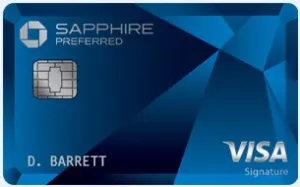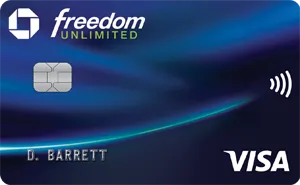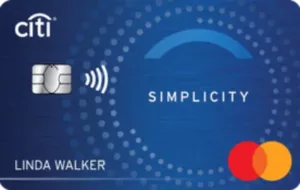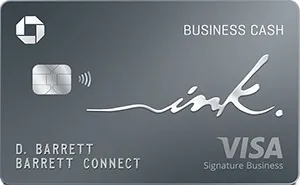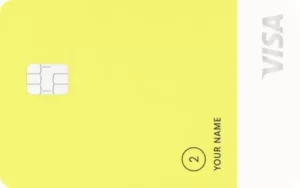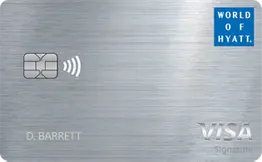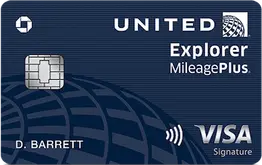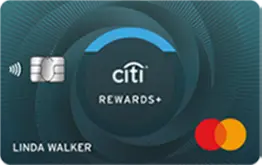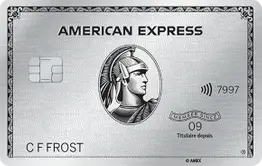Credit Card Comparisons & Reviews
FinanceBuzz is reader-supported. We may receive compensation from the products and services mentioned in this story, but the opinions are the author’s own. Compensation may impact where offers appear. We have not included all available products or offers. Learn more about how we make money and our editorial policies.
Choosing the right credit card for your financial situation doesn’t need to be a challenge. To help choose the right account and card, we’ve created a credit card comparison guide and credit card reviews on all the top options. Whether you’re looking for travel cards to earn rewards or you’re searching for a card that gives you cash back with every purchase, we’re here to break it down for you.
Find a Card That Matches Your Goals
I WANT TO TRAVEL MORE
TRAVEL
If award flights and free hotel nights are your top priority, make sure you have a travel rewards credit card before you pack your bags. In addition to earning nearly free travel, these cards also offer valuable perks like airport lounge access, companion passes, and travel insurance.
Our top travel card is the Chase Sapphire Preferred which is currently offering a 100,000-point sign-up bonus, worth up to $1,250 toward travel when you book through the Chase Ultimate Rewards portal.
I WANT TO EARN CASH BACK
CASH BACK
With cashback credit cards you can earn cash back on everything you buy, including “essentials” like groceries, gas, and Netflix. It’s important to consider what types of purchases you spend the most on before deciding on a card. If you want to keep things simple, get a card with a flat, unlimited earning structure like the Citi Double Cash card that offers up to 2% cash back (1% when you buy, 1% when you pay). A card like the Chase Freedom Unlimited offers more robust earning with 5% on travel purchased through Chase Ultimate Rewards, 3% on dining and drugstore purchases, and 1.5% on all other purchases.
New to credit card rewards? Learn the secrets to traveling for nearly free!
I WANT TO PAY OFF MY DEBT FASTER
BALANCE TRANSFER
Credit cards that offer an introductory 0% APR for balance transfers are a great way to pay off high-interest debt. Transfer your debt to one of these cards and you’ll pay no interest during the introductory period.
The Citi Simplicity Card offers a generous 0% intro APR for 18 months on balance transfers. That’s one of the longest balance transfer periods available! In addition, there’s no annual fee and no late fees ever.
I WANT TO GROW MY SMALL BUSINESS
SMALL BUSINESS
Business credit cards aren’t just for big businesses. If you have a side hustle, a sole proprietorship, or a small biz, you can earn big rewards. There are business cards that earn cash back and others that earn travel rewards.
The Chase Ink Business Cash card has no annual fee and a generous $750 cash back sign-up bonus, plus you can earn up to 5% cash back on your purchases. If you’d rather earn travel rewards, you’ll also want to take a look at the Chase Ink Business Preferred card with its 100,000 point sign-up bonus.
I WANT TO IMPROVE MY CREDIT
BUILDING CREDIT
If your credit score is fair or poor, or you don’t have any credit, you’ll want to start with a credit card designed to help you build credit or repair your credit. Secured cards require you to put down a deposit and your credit limit will be low to start. But, if you make your payments on time, you can build your credit and eventually move to an unsecured card and a higher credit limit. If you have little or no credit history, the Petal Cash Back Visa is worth a look. This cashback card with no annual fee does not require a deposit like secured cards.
Compare More Cards
HOTEL CREDIT CARDS
Hotel credit cards come with perks like status in hotel rewards programs (think: room upgrades, free breakfast, free parking, and more) and complimentary nights. Marriott Bonvoy, World of Hyatt, IHG Rewards, and Hilton Honors are some of the most popular hotel programs you can join and earn points for a free hotel night. One of our favorite hotel credit cards is the World of Hyatt Credit Card, which currently offers a 30,000-point sign-up bonus and a free night every year. With rooms starting at just 5,000 points per night, you’ll have a great headstart on your next vacation!
BENEFITS
- Up to 60,000 point sign-up bonus
- Up to 9X points per $1 spent on Hyatt stays
- 1 free night every year
- Automatic elite status
AIRLINE CREDIT CARDS
Whether you aspire to fly first-class (lie-flat, baby!) or just want to stop paying so many bag fees, airline credit cards are a tool you need in your wallet. Unlike general travel cards, airline credit cards do require a bit of loyalty to a specific airline, but they offer big perks in exchange: free checked bags, priority boarding, status, lounge access, and companion passes. For example, the United Explorer Card offers a sign-up bonus of 60,000 miles, two United Club passes each year, and a free checked bag when you fly United for you and a companion (a value of up to $35 each way per person!).
BENEFITS
- Up to 70,000 mile sign-up bonus
- 2X miles on United purchases, dining, and hotel stays
- Free first checked bag
- 2 United Club Passes annually
STUDENT CREDIT CARDS
Getting your first credit card is an important step toward future financial success. Student credit cards are a great option for students looking to build credit. Student credit cards tend to have low fees and student-focused incentives like bonuses for good grades.
The Citi Rewards+ Student Card offers a generous welcome offer and the opportunity to earn Citi Thank You Points on your purchases.
BENEFITS
- 15,000 ThankYou Point welcome offer
- 2X ThankYou Points at supermarkets and gas stations
- 10% ThankYou Points back for the first 100,000 redeemed per year
- Automatically rounds up to the nearest 10 points on each purchase
- No annual fee
CREDIT CARDS FOR MILITARY
If you’re active duty military, you may be eligible for reduced interest rates and waived credit card fees, including annual fees. This means you might want to take a look at premium credit cards like the The Platinum Card® from American Express which offers big-time perks like both Priority Pass and Centurion lounge access, and $15 toward Uber rides each month. (Select benefits require enrollment.) Military members could get all this without paying the $695 (See rates and fees) annual fee, making it one of the best credit cards for military members. Do note that unlike typical credit cards, the Amex Platinum allows you to carry a balance for certain charges, but not all.
BENEFITS
- Earn 100,000 Membership Rewards points after spending $6,000 in the first 6 months
- 10X points at restaurants worldwide and when you Shop Small in the U.S. (up to $25,000 in combined purchases, during your first 6 months)
- 5X points on eligible flights and hotels
- $200 hotel credit, $240 digital entertainment credit, $200 in Uber Cash, $300 Equinox credit, $200 airline fee credit
- Access to Centurion and Priority Pass airport lounges
- Select benefits require enrollment.
- $695 annual fee. Terms apply.
- See rates and fees
Learn More About Credit Cards
Why Get a Credit Card
Let’s start from the beginning: Why should you get your first credit card, let alone a bunch of credit cards? Credit cards sometimes get a bad rap, but they are a tool you can use to build credit, earn cash back, earn travel rewards, or get access to other really cool perks. The key is using credit cards responsibly.
Credit Card Benefits and Perks
- Credit cards can help you raise your credit score. Yes, it’s true! Credit cards can help you establish a credit history, demonstrate that you make on-time payments, increase your available credit, and decrease your credit utilization.
- You can get money back on every purchase with cashback credit cards. Cashback amounts vary by card and spending category, but you can expect anywhere from 1% back to 6% back with the highest cash back earning cards.
- You can earn (nearly) free travel. If you travel even once or twice a year, travel credit cards can help pay for your next vacation. Like cashback cards, travel cards don’t require any additional spending — just buy what you’d normally buy and watch the points and miles add up.
- Your purchases will be protected. Some credit cards come with perks like purchase protection (you get reimbursed if an item you buy breaks or is stolen), price protection (you get reimbursed if the price drops after you buy something), and fraud protection.
- Your travel will be protected. When you book your flight with an eligible card, you can rest easy knowing you’re covered if your trip is delayed or canceled or if your luggage gets lost. Rental car insurance is also included with many cards.
- You can enjoy an interest-free loan. If you have a big purchase coming up, a 0% APR credit card can help you avoid paying interest while you pay that purchase off.
What About Annual Fees?
All these perks can sometimes come with a cost, specifically an annual fee. You might choose to avoid annual fees altogether and choose a credit card with no annual fee. There are some excellent no-fee options like the Blue Cash Everyday® Card from American Express or the Capital One VentureOne Rewards.
But don’t rule out a card with an annual fee just yet. Often it’s pretty easy to justify the annual fee, even for premium cards. While the Chase Sapphire Reserve annual fee of $550 may seem steep, the card can easily pay for itself when you take a closer look at its generous benefits like the $300 travel credit.
Cash back vs Miles
If you’re in the market for a credit card that earns rewards, the first decision you’ll need to make is whether you want to earn cash back or travel rewards. Both are great options that can add up to huge value. The choice really comes down to your goals and priorities.
Benefits of Cashback Credit Cards
Cashback credit cards are a super simple way to earn money back on everything you buy. If you’re not a big traveler or just prefer the flexibility of cash, there’s a lot to love about these cards.
- Earn cash back on everything you buy. Cash back amounts typically range from 1% to 6%, but sometimes you’ll find even higher cashback offers.
- Cash back can really add up. Let’s say you spend $500/month on groceries. With the Blue Cash Preferred® Card from American Express you can earn 6% cash back on purchases at U.S. supermarkets (up to $6,000), meaning your $6,000 spend would result in $360 back every year!
- Enjoy the simplicity of cashback cards. Just use your card then redeem your cash. It’s really that simple. Depending on the card you choose, you can use your cash back as a statement credit, get a check, or redeem it for gift cards.
Benefits of Travel Rewards Credit Cards
Travel rewards credit cards allow you to turn your everyday spending into points and miles that you can use for travel. In addition to satisfying your wanderlust, you can often get a higher value for your points when redeeming for travel.
- Rack up points you can use for plane tickets, hotels, rental cars, and even theme park tickets. Chase Ultimate Rewards points and American Express Membership Rewards points are two of the most popular types of points because of how flexible they are to earn and redeem.
- Enjoy the flexibility of multiple redemption options. If you want to keep things simple, you can just redeem your points in the credit card issuer’s portal like the Chase travel portal. It’s just like searching and paying for travel on Expedia or Google Flights, but instead of using money, you pay with points.
Or, with many cards you also have the option to transfer your points to airline and hotel partners where you have the potential to redeem them for even more value. Every program works a little differently, so you’ll want to learn the details for your card:
Don’t Overlook Business Credit Cards
Got a side hustle? Freelance gig? Drive an Uber? Sell stuff on eBay? Good news — you probably qualify to get a business credit card. More good news — the process to apply for a business credit card is straightforward and not intimating.
Business cards allow you to keep your business expenses separate (huge when tax time rolls around!) and earn valuable rewards on your business spending. Like personal credit cards, you can earn travel rewards or cashback rewards — the choice is yours! If you’re ready to get your first business card, you can start by comparing the Chase Ink business cards.
Tips for Applying for a Credit Card
Nobody likes rejection, so here are three tips to increase your chances of getting approved for your next credit card.
- Know the card issuers’ rules. Each credit card issuer has different rules about how often you can apply for cards and how many you can hold. For example, the Chase 5/24 rule states that you can only open five new credit card accounts in a 24-month period. If you try to open more, you’ll be denied.
- Be realistic. There’s a credit card out there for everyone, even if you’re trying to get a credit card without a job. Know your credit score and only apply for cards you’re likely to get approved for.
- Don’t be afraid to follow up. You may not be approved for the card immediately. Don’t give up. You can check to see your credit card application status and even call a reconsideration line if you’re denied — you may be able to turn your denial into approval over the phone.
How Sign-Up Bonuses Work
You can think of sign-up bonuses as a thank you from the credit card companies for choosing their card. They are a one-time opportunity to earn bonus points, miles, or cash back during the first few months you have the card. Sign-up bonuses go by different names — welcome bonus, early spend bonus, welcome offer — but no matter the name, they aren’t to be overlooked because they offer huge value.
To qualify for a sign-up bonus, you generally need to spend a certain amount of money over a prescribed timeframe. For example, a sign-up bonus may look like this: Earn 100,000 points if you spend $2,000 in the first 3 months after opening the card.
The amount you need to spend to qualify for the sign-up bonus is known as the “minimum spend.” Pay close attention to the minimum spend when comparing card offers and make sure you can hit that number without overspending. Luckily, you can pay for almost anything with a credit card; you can pay your rent or mortgage with a credit card, pay a friend with a credit card, and even pay your utility bills with a credit card.
One last thing: Be careful when comparing sign-up bonuses because not all points and miles are created equal. Take the time to do a little research and understand how many points are needed for a free flight or how many points for a free hotel night before comparing offers.
How to Maximize Your Earnings
If you’re ready to dive into the world of credit card rewards, here are a few next level tips for you.
Know your spending habits. What is it you spend the most money on? You’ll want credit cards in your wallet that earn you big rewards on those categories. Here are some common categories where you could easily earn a lot of rewards:
- Best Credit Card for Gas and Groceries
- Best Credit Card for Online Shopping
- Best Credit Card for Uber
- Best Credit Card for Lyft
- Best Credit card for Dining
Take advantage of rotating categories. Some cards offer bonus spending categories that can really power up your earnings. Take a look at the Discover it cash back calendar and Chase Freedom categories to see if you spend in the bonus categories for an opportunity to earn 5% back.
Avoid paying interest. Interest payments will negate the value of any rewards you earn. If you already have credit card debt that you’re paying interest on, consider moving that debt to a card that offers a long 0% interest period. With a balance transfer, you should be able to pay the debt off faster and put yourself in a position to start earning rewards sooner.
Sign up for airline dining programs. You can earn even more miles when you sign up for airline dining programs like the Delta SkyMiles Dining program, AAdvantage Dining program, or the United MileagePlus Dining program. Bonus points for dining out — a delicious combo!
Shop your way to rewards. With shopping portals like Shop through Chase you earn extra points when you start your shopping trip with them. It’s a super easy, but often overlooked way, to build up your points.
The Final Word
Credit cards can be an amazing tool to help you achieve your financial goals if you follow these three rules:
- Act responsibly: Don’t carry a balance, don’t go into debt chasing rewards, and know your weaknesses. If you can’t control your spending, consider sticking with a debit card.
- Have a plan! Take the time to think about what you want to accomplish and map out your strategy. Do the research to reap the rewards. Our free Facebook group, FBZ Elite – Travel and Points, is a great place to ask questions.
Dream big. Credit cards can be the key to unlocking all kinds of cool experiences. Don’t take our word for it — read the success stories of FinanceBuzz readers:
Meet the FinanceBuzz Credit Cards Team

Brandon Neth
He’s the man with a plan, dropping credit card knowledge across FinanceBuzz. Brandon runs the 25,000 member FBZ-Elite Travel and Points Facebook group. You can also find him (and his fabulous hair) on the FinanceBuzz YouTube channel.

Ben Luthi
Ben is a credit card enthusiast who has earned tens of thousands of dollars in free travel over the past few years. He especially loves traveling with his two kids and hopes to pass his love for exploration onto them.

Stephanie Colestock
Stephanie Colestock is a credit card expert, travel rewards aficionado, and writer who enjoys teaching people how to be financially independent and confident about their money choices. She is currently working toward her CFP certification.

Lee Huffman
Lee is a former financial planner who now writes about credit cards. When Lee is not getting his passport stamped, he’s researching methods to earn more miles and points toward his next vacation.

Miranda Marquit
Miranda has been covering money for more than a decade and is a nationally recognized financial expert and journalist. Miranda enjoys traveling several times a year with her teenage son.
Read Our Latest Credit Card Stories
If you're craving a sweet cup of coffee, good luck picking just one to kickstart ...
These cookie recipes represent the best of the best, including chewy chocolate. ...
Posuere, felis pellentesque tortor quis. Montes Ad nascetur nostra gravida pede dictum mattis pede ac ...




